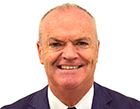This article was originally published by the Official Monetary and Financial Institutions Forum (OMFIF) in the The OMFIF Commentary
Argentines love to stay up late. Dining at midnight is not uncommon. But the result of Latin America’s most significant election this year came in almost the minute the polls closed at six last night local time.
Mauricio Macri, the businessman who converted his presidency of the Boca Juniors football club into a new political movement, slogan Let’s Change, won the first run-off in the history of Argentina’s modern democracy – and so becomes the first president not from the two parties that have dominated Argentine life for more than a century.
‘We’ve done the impossible with this election,’ Macri told his ecstatic supporters at a massive rally on the banks of the River Plate, as the final tally showed a narrow victory rather than the sweeping mandate he sought. ‘Let’s make history going forward, and rebuild this country from the ground up.’
His opponent, Peronist Party Governor of Buenos Aires province Daniel Scioli, conceded well before Argentines sat down to eat. ‘We leave them a country stronger than ever, a country that looks after all Argentines, a nation united behind what we have achieved as a government. Let’s protect what we’ve done,’ he told a crowd of party militants in a downtown hotel.
With that rather limp defence of the status quo, the 12 years of the Kirchner dynasty (first the late Nestor, then his wife Cristina) came to an end. And much as she, and her anointed successor Scioli, tried to gloss it over with a propaganda machine, the legacy represents a poisoned chalice for Macri.
‘’This is not a moment for revenge, or settling accounts,’ said Macri, whose stature has grown quite dramatically in the final weeks of this campaign. ‘It’s a serious moment for our country, with serious issues to be faced, and we need to work on behalf of every Argentine.’
Now comes the hard part, and in the words of one of Macri’s lead advisers: ‘there are no good options here, only brutal choices, if we are to take the country out of steep decline, and back to growth…yet if we don’t act, and quickly, a crisis is inevitable.’
The handover of outgoing President Cristina Fernandez de Kirchner is stark in economic terms. Inflation running at 25 per cent, unemployment rising, a budget deficit approaching six per cent of GDP, foreign currency reserves depleted, and the value of the peso unknown, with an official rate at less than 10 to the dollar, the parallel market rate well over 15 pesos.
Macri side-stepped concrete details of his agenda as he built a new coalition of the silent majority who wanted an end to the nepotism, corruption and eccentric public spending of the Kirchner government – witness the nationalisation of Argentine football, every game served up every weekend on the government-controlled television channels, costing the taxpayer tens of millions of dollars.
Yet Macri-economics will revolve around a devaluation sooner rather than later (the candidate himself has suggested letting the peso float to between 15-16 to the dollar). Next on the list will be cuts in subsidies, particularly of the energy and transport sectors, coupled with instant breaks for farmers, to stimulate an agricultural sector that has been holding on to food exports because the Kirchners imposed crippling taxes.
But given his narrow victory, he has served notice that he will not stop welfare programmes that mean almost half the population receives government aid. Nor will he attempt to reverse the nationalisation of the state oil giant YPF, and the national airline, another major drain on government revenue.
Then there is the thorny issue of Argentina’s relationship with the world. The Kirchners opted for secret deals with the Russians and the Chinese, while berating the United States. Macri insists he will take Argentina ‘back to the real world…where we talk to everyone, and we sell to everyone…where we pay our debts, and become trusted business partners again.’ Foreign investors have been betting on a Macri victory for weeks now, and major funds eye Argentina as an opportunity once again.
One key indicator will be if the Macri government seeks to cut a deal with those ‘holdout’ creditors who demand full payment of debts stemming from Argentina’s default in 2001, and have won a ruling in the US courts. ‘Settling that issue could be the cue for a return to capital markets, and to the IMF,’ according to one leading economist. ‘A relationship with the IMF will be critical.’
In the short term, Macri and his team have to hope as well that the Peronist Party machine does not replay history, and seek to undermine such alternative government with strikes and demonstrations. An historic election, maybe, but a challenge to govern from day one when he takes office on December 10.
David Smith, OMFIF Board member, represented the UN Secretary-General in the Americas 2004-14.
